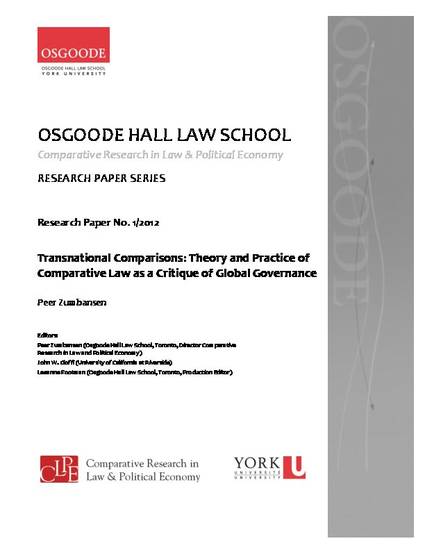
- comparative constitutional law,
- comparative law,
- constitutionalism,
- practice,
- Transnational law
A project seeking to assert and contrast the ‘practice’ of comparative law in distinction from the well-known and longstanding theoretical critique of the field is itself in need to define the meaning of practice. The following chapter, written for a volume edited by Jacco Bomhoff and Maurice Adams, takes up this challenge in two steps. In a first one, it revisits comparative law’s seemingly eternal self-doubt regarding its target of inquiry and its method. I will suggest that there is a great promise for comparative legal studies in the context of transnational legal pluralism as a methodological approach to the study of intersecting normative and institutional orders. In a second step, I would like to draw out the context in which current debates about comparative and transnational law are unfolding. This context- ‘global governance’- poses significant challenges for the role of law in what has fast become a multi-disciplinary inquiry regarding the contours and foundations of a continuously evolving global regulatory landscape. A reflection on the regulatory aims of comparative law as transnational law, which I have been pursuing together with Russell Miller in ‘Comparative Law as Transnational Law: A Decade of the German Law Journal’ (Oxford University Press, 2012), can serve as a powerful critique of global governance.
Available at: http://works.bepress.com/peer_zumbansen/78/
